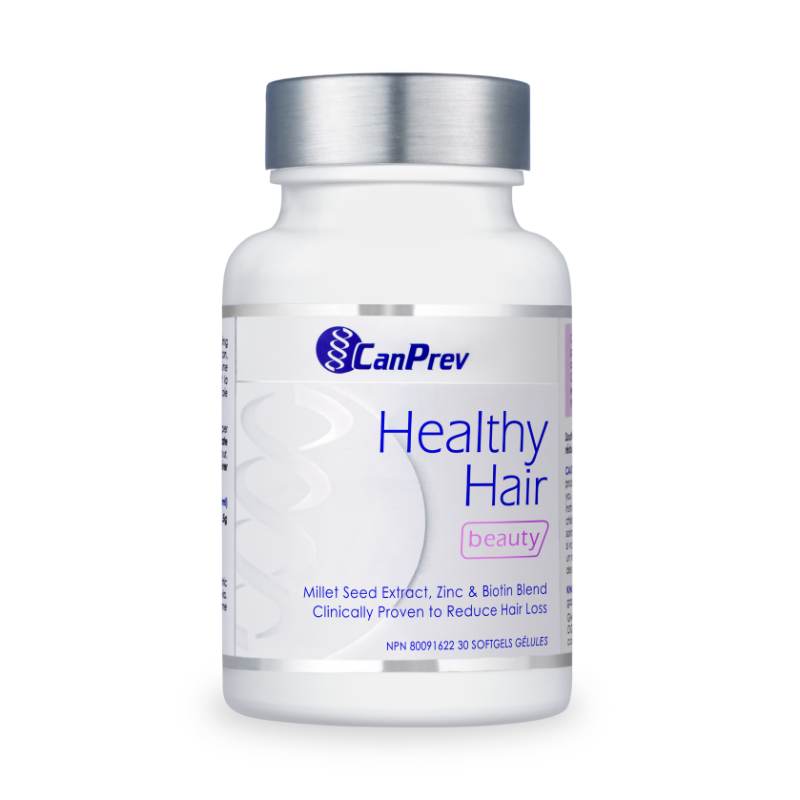Nutrients to prioritize for healthy hair
Our locks are more than just a crowning glory - they’re storytellings, sharing important insights about our bodies and overall health. That’s why achieving stunning hair isn’t just about styling and shampoos; it’s about understanding our body’s cues and responding with care and nourishment. The journey to luscious locks involves balancing hormones, managing stress, and ensuring you’re getting the right nutrients. Whether you’re dealing with hair thinning and brittleness, or just want to maintain your gorgeous locks, let’s untangle
the relationship between nutrition, lifestyle and hair health.
Getting to the root of healthy hair
The hair growth cycle is a continuous and natural process that occurs in three main phases:
Anagen Phase (Growth Phase): During this phase hair follicles actively generate new hair cells, typically lasting 2 to 7 years with a growth rate of about 1.25 cm per month. This rate can vary based on genetics and other factors.
Catagen Phase (Transitional Phase): During this phase, the hair follicle shrinks and detaches from the blood supply, which causes the hair strand to stop growing and eventually fall out. This short, transitional period lasts for a few weeks.
Telogen Phase (Resting Phase): Lasting for a few months, during this phase the hair follicle remains dormant, and no new hair growth occurs. About 10-15% of the hair on your scalp is usually in this phase at any given time. After the telogen phase, the hair follicle reenters the anagen phase, repeating the cycle. However, hair follicles may not synchronize in their cycles, resulting in hairs at different growth stages simultaneously.
Factors that can impact hair health
Stress: While stress is a common part of life, heightened emotional and mental strain can escalate into telogen effluvium, a condition
where hair follicles prematurely enter the resting phase, disrupting the growth cycle. Ordinarily, we
shed around 100 hairs daily, but this condition can cause up to 300 strands to fall out per day, primarily affecting the top of the head.
Age: Did you know that the leading cause of age-related hair loss in women is hormonal imbalance, naturally triggered by menopause? The
hormones estrogen and progesterone promote the anagen phase, but starting around age 40, these hormones naturally deplete which can
lead to hair loss, thinning, and a lack of growth.
Nutritional deficiencies: Hair follicle cells divide rapidly, making them susceptible to nutrient deficiencies, which can cause thinning, dullness, and breakage. Keratin, a vital fibrous protein for hair, skin, and nails, forms the foundation of hair.
Essential nutrients like protein, biotin, and zinc support keratin production, promoting strong, vibrant hair.
Key nutrients for healthy hair
a) Balanced diet rich in supportive nutrients can help boost hair growth and vitality. Let’s take
a closer look.
b) Omega-3s nurture the scalp, promoting health and preventing dryness and irritation. By reducing inflammation, they create an environment for thriving hair follicles, resulting in stronger strands. Omega-3s also enhance blood circulation, delivering essential
nutrients to encourage growth and improve hair quality. Rich dietary sources include fatty fish, flaxseeds, walnuts, and chia seeds.
B vitamins: B vitamins support the metabolism of amino acids, the building blocks of protein. Since hair is primarily made up of protein,
ensuring efficient amino acid metabolism is vital for healthy hair growth. B vitamins also help carry oxygen and nutrients to the scalp
and hair follicles. Did you know that biotin has been linked to preventing hair loss and improving hair texture and thickness? Foods
rich in B vitamins include whole grains, nuts, seeds, and leafy greens.
Protein: Consider protein the building blocks of hair, providing the essential nutrients to keep those strands strong and luscious. Our hair, composed mainly of keratin, relies on adequate protein intake for health and vitality. Protein not only helps the growth and repair of hair but also helps to prevent breakage and promote shine. Increase your protein intake with foods like eggs, fish, lean meats, beans, and nuts.
Zinc: Zinc is involved in the formation of new proteins, including keratin. It also regulates hormone levels and promotes a healthy scalp.
Your body absorbs 20 – 40% of zinc found in food and is most easily absorbed from red meat, fish, and poultry. For vegetarian options, chickpeas, lentils, and beans are excellent sources of zinc. Since they contain phylates, which can reduce zinc absorption, soaking or cooking them can help increase absorption.
Millet seed: Rich in millacin, millet seed promotes hair health by stimulating cell growth at the hair follicle’s base. You can easily incorporate millet seed into your diet by adding it to cereals, granola mixes, salads, soups, or even using millet powder to make gluten-free bread.
Supporting hair health with quality supplements
Hair supplements can be a helpful addition to your routine when you’re struggling to meet your hair’s nutritional needs through diet alone. Certain factors like stress, hormonal changes, or medical conditions can impact hair health, warranting the need for extra support.
CanPrev’s Healthy Hair is a clinically proven formula to reduce hair loss and improve the volume, health and beauty of hair. This formula
nourishes hair growth with therapeutic amounts of biotin, zinc and vitamin B6, as well as a unique plant-based blend of gluten-free millet and wheat extracts.
No matter how you style it, your hair journey begins beneath the surface. With supportive nutrients and lifestyle habits, you can nourish
your tresses from the inside.




